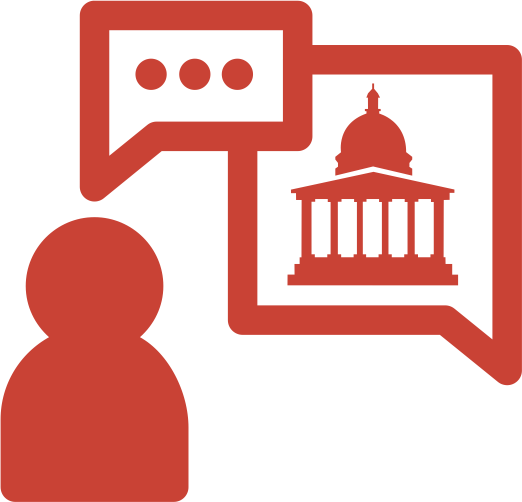As an international school in Mumbai, our responsibility is not just to prepare students for academic success but to equip them with the values, skills, and mindset needed to create meaningful social change. Schools play a pivotal role in shaping young minds, fostering awareness, and inspiring action that benefits the wider community.
Education is not just about individual achievement—it is about collective progress. When students understand societal challenges and feel empowered to address them, they become changemakers who can drive positive transformations.
In this blog, we will explore how schools can be catalysts for social change, focusing on the importance of building social awareness, fostering empathy, encouraging student leadership, and collaborating with communities.
As one of the best international schools in Mumbai, we recognize that true education is not just about acquiring knowledge but about using that knowledge to make a difference.
Building Social Awareness Through Education
At Aditya Birla World Academy, we understand that awareness is the first step toward meaningful change. When students are exposed to pressing social issues from an early age, they develop a deeper understanding of the world around them. By integrating real-world challenges into our curriculum, we encourage students to think critically and engage in discussions about equity, sustainability, and justice.
Incorporating subjects like environmental studies, human rights, and ethical leadership helps broaden students’ perspectives. Classroom discussions on global and local issues encourage analytical thinking and problem-solving, helping students connect their learning to real-life situations. Through guest lectures, interactive workshops, and case studies, we ensure that students are not just passive learners but active participants in addressing social concerns.
Beyond academics, initiatives like model United Nations conferences, social impact clubs, and awareness campaigns enable students to voice their thoughts and develop solutions.
Only when students are informed can they take meaningful action. Through structured learning and experiential opportunities, we empower our students to recognize their role in shaping a
Fostering Empathy and Civic Responsibility in Students
At ABWA, we believe that empathy is the foundation of social change. When students develop the ability to understand and share the feelings of others, they become more inclined to take action for the greater good. Schools play a crucial role in nurturing this quality, ensuring that students grow into compassionate and responsible individuals.
Empathy-driven education begins with exposure. By engaging in storytelling, role-playing, and reflective discussions, students step into the shoes of others, gaining insight into different perspectives. Literature, history, and social sciences serve as powerful tools to help students understand struggles that may be different from their own.
Experiential learning further strengthens civic responsibility. Initiatives such as community service programs, visits to NGOs, and student-led charity drives provide firsthand exposure to societal challenges. These experiences not only build character but also instill a sense of purpose, encouraging students to contribute meaningfully to society.
When children are taught the importance of kindness, inclusivity, and active citizenship, they naturally develop into individuals who drive positive change.
Student Leadership and Grassroots Movements
Leadership is not just about holding titles—it is about taking initiative, making ethical decisions, and inspiring others to act. By fostering student leadership, young minds take ownership of social causes and lead by example.
Student councils, advocacy groups, and sustainability clubs provide platforms for students to channel their passion into action. From organizing awareness campaigns on climate change to leading donation drives for underserved communities, students learn that leadership is not about authority but responsibility.
Encouraging grassroots movements within schools helps students understand the impact of collective effort. Initiatives such as plastic-free campaigns, mental health awareness programs, and peer mentorship groups demonstrate that small, consistent efforts can lead to significant change.
Furthermore, leadership development programs, public speaking workshops, and mentorship opportunities help students refine their skills. By engaging in real-world challenges, they learn resilience, adaptability, and collaboration—essential traits for future changemakers.
We believe that every student has the potential to lead, and through structured opportunities, we ensure that they step forward with confidence, ready to make a lasting difference in society.
Collaboration with Communities
True social change happens when students actively engage with their communities, working together to create meaningful solutions for real-world problems.
Community collaboration starts with fostering strong partnerships between students, educators, and local organizations. Service-learning projects, where students apply their knowledge to address societal challenges, bridge the gap between theory and practice. Whether through environmental conservation projects, digital literacy programs for underprivileged children, or healthcare awareness initiatives, students develop a hands-on approach to problem-solving.
Regular interactions with community leaders, activists, and professionals provide students with deeper insights into social issues. Volunteering opportunities, internships, and mentorship programs allow them to understand challenges firsthand and contribute to sustainable solutions.
Beyond direct action, schools can also serve as knowledge hubs, hosting discussions, awareness programs, and social innovation challenges that invite community participation.
The Role of Teachers in Inspiring Social Responsibility
Teachers are more than educators—they are mentors, role models, and guides who shape the values of their students. The way teachers approach social responsibility has a profound impact on how students perceive their role in the world.
By integrating social issues into their teaching methodologies, educators inspire students to think beyond textbooks. Discussions on ethical dilemmas, historical movements, and global challenges encourage students to question, analyze, and develop informed opinions. Encouraging debate and critical thinking instills a sense of responsibility, making students more conscious of their impact on society.
Teachers also lead by example. When educators actively participate in social initiatives—whether by organizing charity events, leading environmental campaigns, or volunteering—students witness firsthand the power of individual action.
Mentorship plays a key role as well. When teachers support students in launching projects, researching social topics, or even simply offering encouragement, they create a nurturing environment where young changemakers thrive.
Conclusion
At Aditya Birla World Academy, we believe that education is the most powerful tool for transformation. As an international school in Mumbai, we are committed to nurturing students who do not just excel academically but also contribute meaningfully to the world around them. Schools have the responsibility to shape the next generation of leaders, activists, and responsible citizens.
Our efforts in engaging with communities, empowering student-led initiatives, and supporting teacher-driven mentorship ensure that social responsibility is not just taught but lived.
As one of the best international schools in Mumbai, we take pride in equipping our students with the knowledge and values they need to drive positive change. The journey from campus to community is one of continuous learning, action, and impact—and it begins with education.

 Online Admission
Online Admission Scholarship Programme
Scholarship Programme University Counselling
University Counselling Leadership
Leadership Voices at ABWA
Voices at ABWA